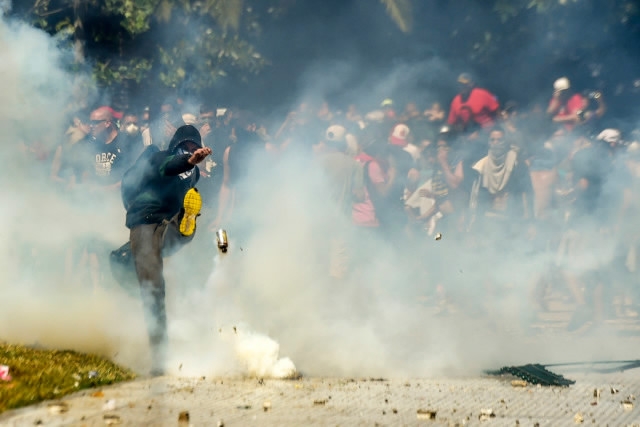Despite opposition protests, Argentina's Congress passed a pension system overhaul on Tuesday. Those opposed to the change say it will hurt retirees, but the government says it will cut the deficit.
Argentina has received praise from outside the country for its economic reforms, but within its borders, many Argentinians feel differently.
Hundreds of police were deployed as tens of thousands of protesters gathered near the National Congress on Monday ahead of the vote.
Shortly before balloting was due to begin, chaos erupted.
Some demonstrators broke up the pavement and used chunks of cement to battle police as violence spread. People are angry over not just the reform measures, but also with what they say is the heavy-handed approach by the security forces.
Videos and photos of the clashes have spread on social media.

This was the second time that the vote for pension reform had descended into violence just meters outside Congress.
Pension reform is part of an austerity package to reduce Argentina's growing deficit. The measure that passed will change how pension increases are calculated, reducing the amount retirees receive. The government aims to save over 5 billion US dollars and says the reform is fair.
"This formula will guarantee that increases will always be more than inflation, said President Mauricio Macri. "It is part of the continual reform which we are doing, always aiming for the same thing: reduce poverty, grow and generate opportunities so the middle class can grow."
But critics say that while powerful sectors like mining and agriculture have benefited from tax breaks, this broader reform, which includes more than just pensions, hurts millions of Argentinians.
"The key here is the reform is taking from retirees, from welfare for the poorest children, from Malvinas war veterans, and disabled. The most vulnerable sectors of society," according to deputy Alcira Argumedo.


